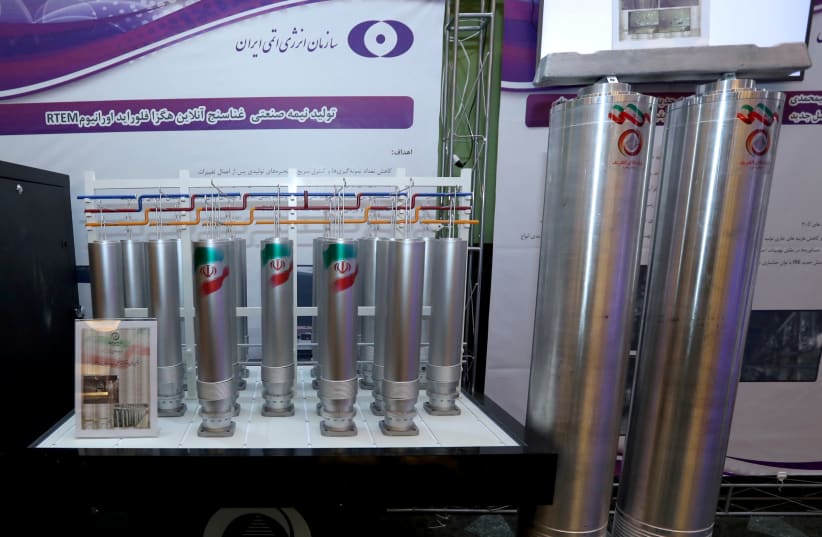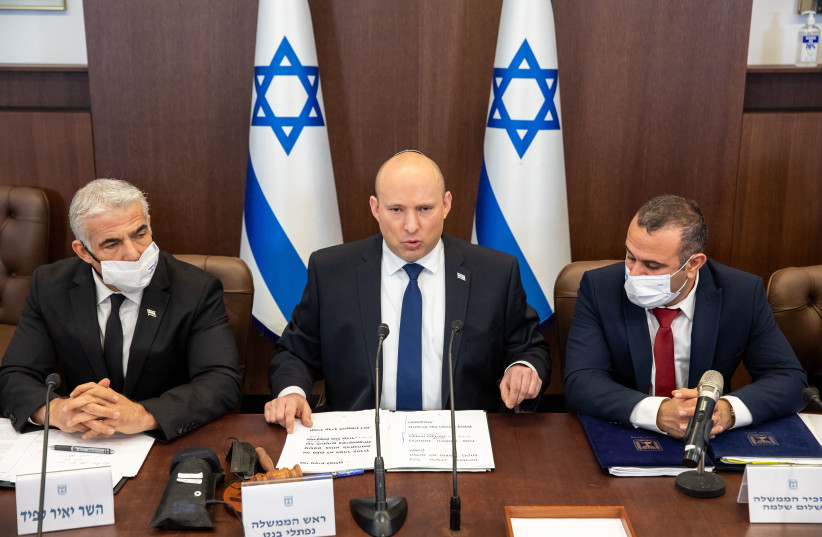World powers must pressure Tehran to halt its enrichment of uranium prior to the resumption of another round of indirect talks in Vienna to revive the 2015 Iran deal, Prime Minister Naftali Bennett said.
"I call on every country negotiating with Iran in Vienna to take a strong line and make it clear to Iran that they cannot enrich uranium and negotiate at the same time," Bennett told his weekly cabinet.
He spoke after a seventh round of indirect talks in Vienna between Tehran and the United States, along with the five other world powers, ended on Friday without any progress.
It is unclear whether they will resume again this week.
"Our goal is to utilize the window of opportunity that has opened between the rounds in order to tell our friends in the US: This is precisely the time to use a different toolkit against Iran's galloping forward in the enrichment sphere," Bennett said.
"There is a time for everything. A time to keep silent and a time to speak up. Now is the time to speak up," he added.
This week, Defense Minister Benny Gantz and Mossad chief David Barnea are slated to be in Washington to discuss Iran with US officials.
The Trump administration had exited the Iran deal, also known as the Joint Comprehensive Plan of Action, in 2018, and reimposed sanctions that had been lifted as a result of the deal.
US President Joe Biden has sought to revive the deal, which had also been signed by Germany, France, Great Britain, Russia and China.
The European Union brokered six rounds of indirect talks between the US and Iran prior to the election of a new Iranian government in June led by President Ebrahim Rasi.
European and US officials have said that during the seventh round of talks last week, the new Iranian government put new demands on the table and walked back the progress that had been made earlier in the year.
Iran had halted its compliance with the deal in 2019 and has inched toward the production of weapons-grade uranium.
Bennett in his remarks to the weekly cabinet accused Iran of taking an "aggressive and bullying approach" to "blackmail" the US into removing existing sanctions so it can fund its global terror activity through its pursuit of uranium enrichment, Bennett said.
"We are holding an intensive dialogue on this matter with the Americans, the British, the French, Russia and others," Bennett said.
He pointed to a report released last week by the International Atomic Energy Agency that Iran "had begun to enrich up to 20% purity in advanced centrifuges at Fordow." He added, "This is a very serious step," Bennett said, adding that "Iran must start paying for its violations."
He warned the US and the world power that a "bad deal with the Iranians will have implications for our national security."

